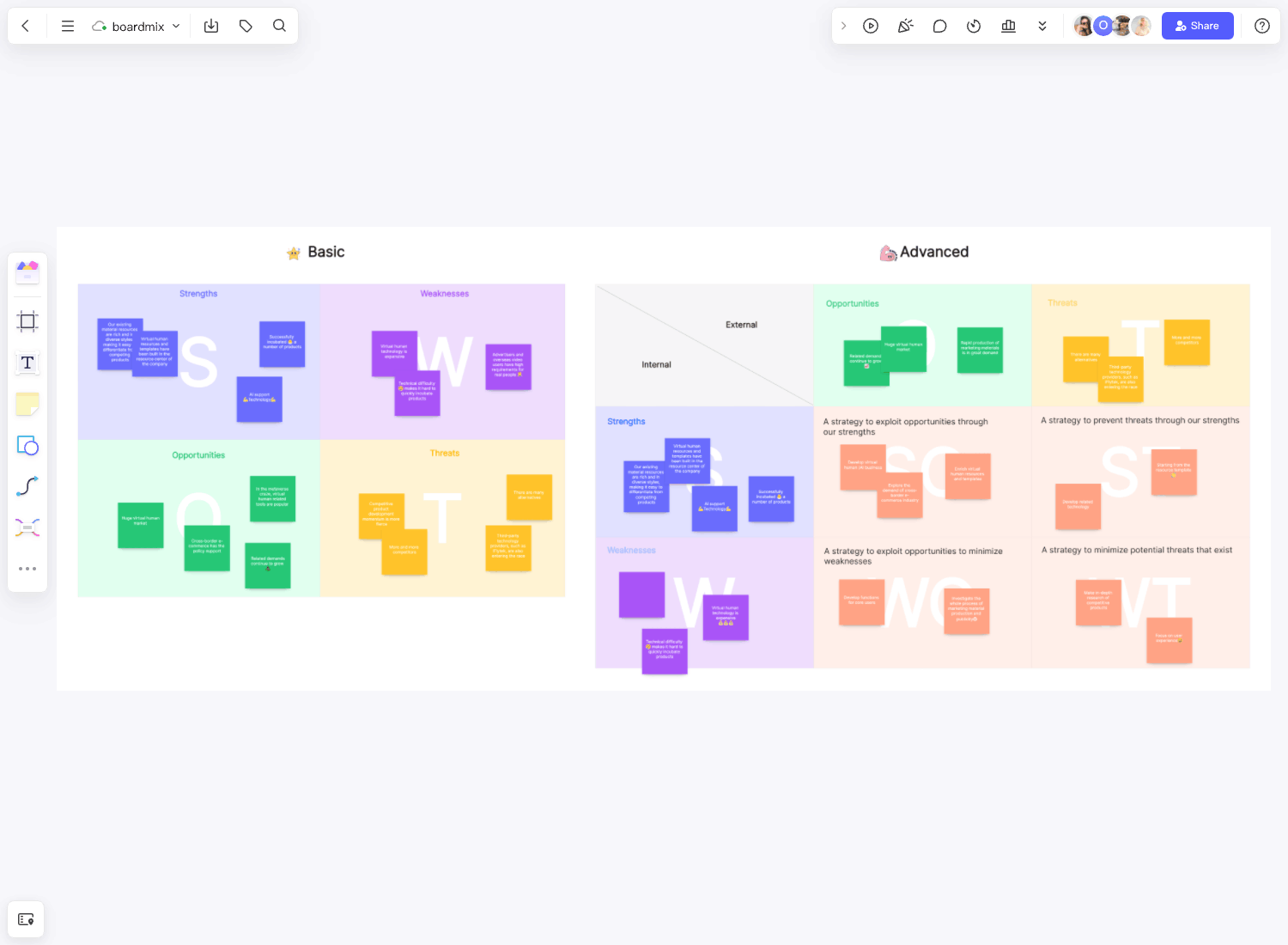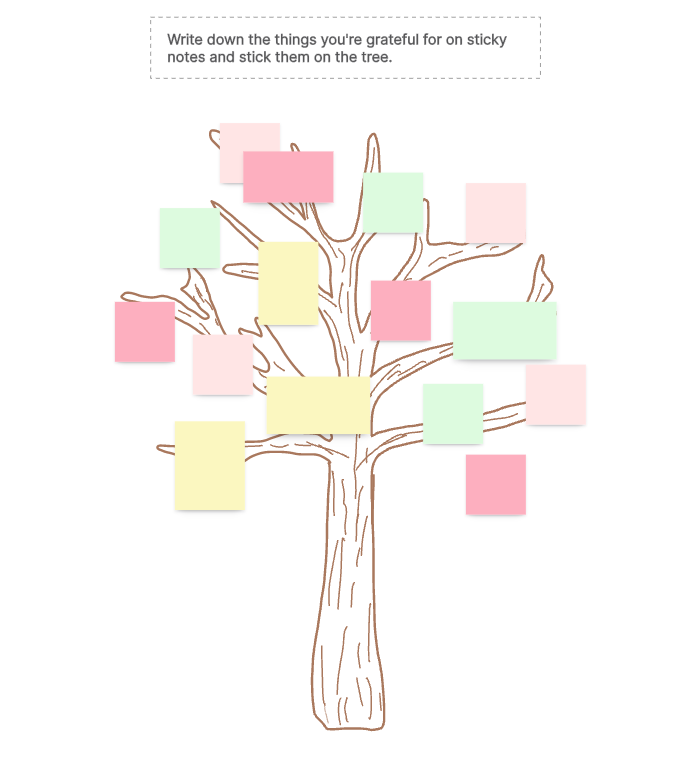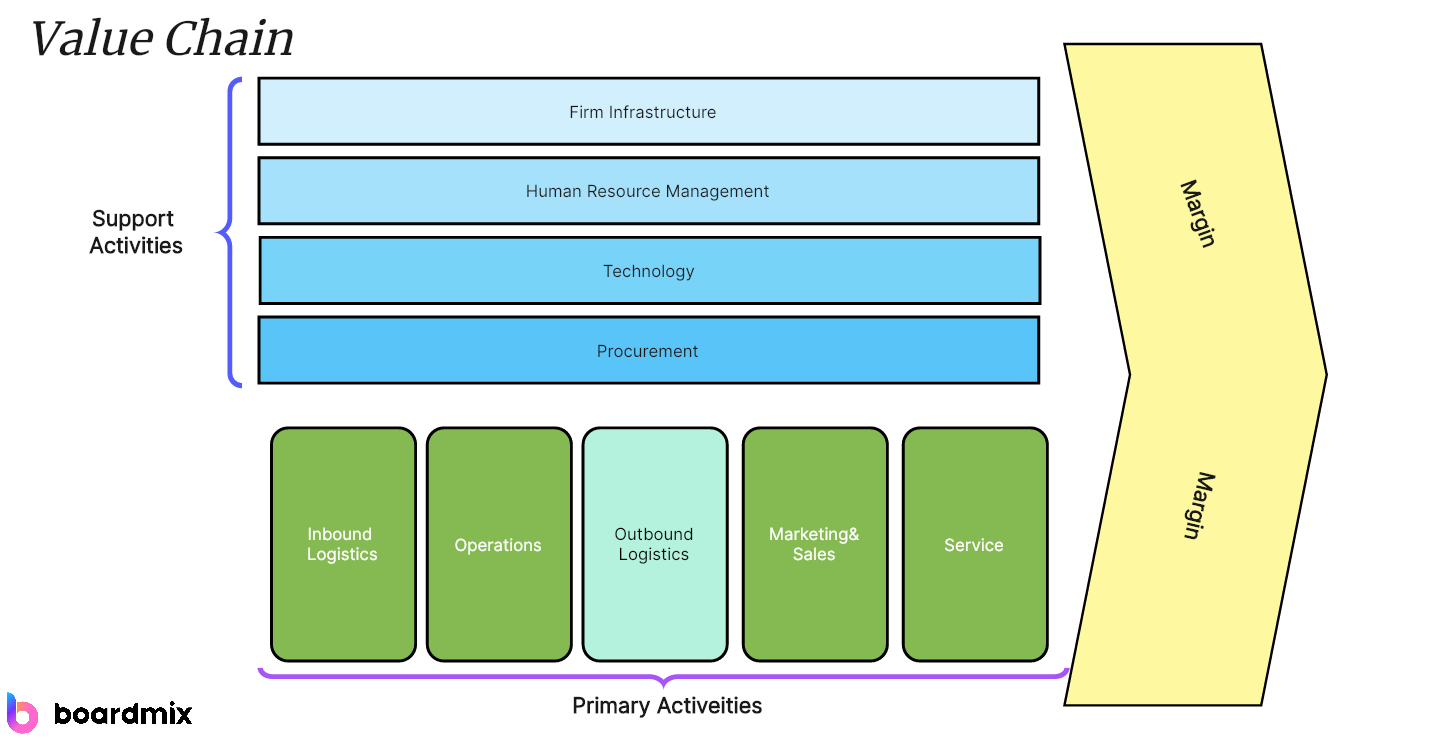In the realm of project management, effective project coordination is a cornerstone for success. It involves harmonizing various elements of a project to ensure smooth execution and completion. This article delves into the intricacies of project coordination, its benefits, roles involved, and how to improve it. We will also introduce you to an innovative online whiteboard tool that can significantly enhance your project coordination efforts.
Part 1. What Is Project Coordination?
Project coordination is a pivotal element in the sphere of project management. It encompasses the organization and management of various resources, tasks, and processes with the ultimate goal of achieving specific objectives within predefined timelines and budgets. This process necessitates exceptional communication skills to ensure clear conveyance of ideas and expectations, robust problem-solving abilities to tackle unforeseen challenges, and meticulous attention to detail to keep track of every aspect of the project. The overarching aim is to foster a cohesive team environment where all members are aligned, informed, and working collaboratively towards shared objectives. In essence, project coordination serves as the glue that binds together all disparate elements of a project, ensuring it progresses smoothly from inception to completion.
Part 2. Benefits of Project Coordination
Indeed, the power of effective project coordination cannot be overstated. It acts as a catalyst that brings forth numerous benefits, transforming the way projects are managed and executed. Let's delve deeper into these advantages:
- Improved Efficiency: By meticulously streamlining tasks and responsibilities, project coordination ensures that projects run more smoothly and seamlessly. It eliminates redundancies, optimizes workflows, and promotes a more efficient use of time and resources.
- Enhanced Communication: Project coordination fosters an environment of open and consistent communication. Regular updates keep everyone in the loop about the project's progress, fostering transparency and trust within the team.
- Reduced Risks: Through proactive planning and constant monitoring, potential issues are identified early on in the project lifecycle. This allows for timely intervention to mitigate risks before they escalate into major problems.
- Cost Savings: Efficient use of resources is a hallmark of effective project coordination. By avoiding wastage and ensuring each resource is utilized optimally, significant cost reductions can be achieved.
- Increased Productivity: Clear roles and expectations eliminate confusion and ensure that every team member knows exactly what they need to do. This clarity allows them to focus better on their tasks, thereby boosting overall productivity.
In essence, effective project coordination not only enhances the operational aspects of a project but also contributes significantly towards building a harmonious team dynamic.
Part 3. What Is a Project Coordinator?
A Project Coordinator is an indispensable member of any project team. This role is the linchpin that holds the entire project together, ensuring all aspects are running smoothly and efficiently. From the initiation phase right through to completion, the Project Coordinator oversees the day-to-day operations, acting as a bridge between different stakeholders and team members. They are responsible for planning, executing, monitoring, controlling, and closing projects. Their duties extend beyond mere administration; they are often involved in strategic decision-making processes too. With their comprehensive understanding of project goals and timelines, they ensure that every task aligns with the overall objectives. In essence, a Project Coordinator is like a conductor orchestrating a symphony - they bring harmony to complex processes and ensure everyone plays their part to perfection.
Part 4. Responsibilities of a Project Coordinator
The role of a Project Coordinator is multifaceted, encompassing a wide range of responsibilities that are crucial for the successful execution of a project. Let's delve deeper into these key areas: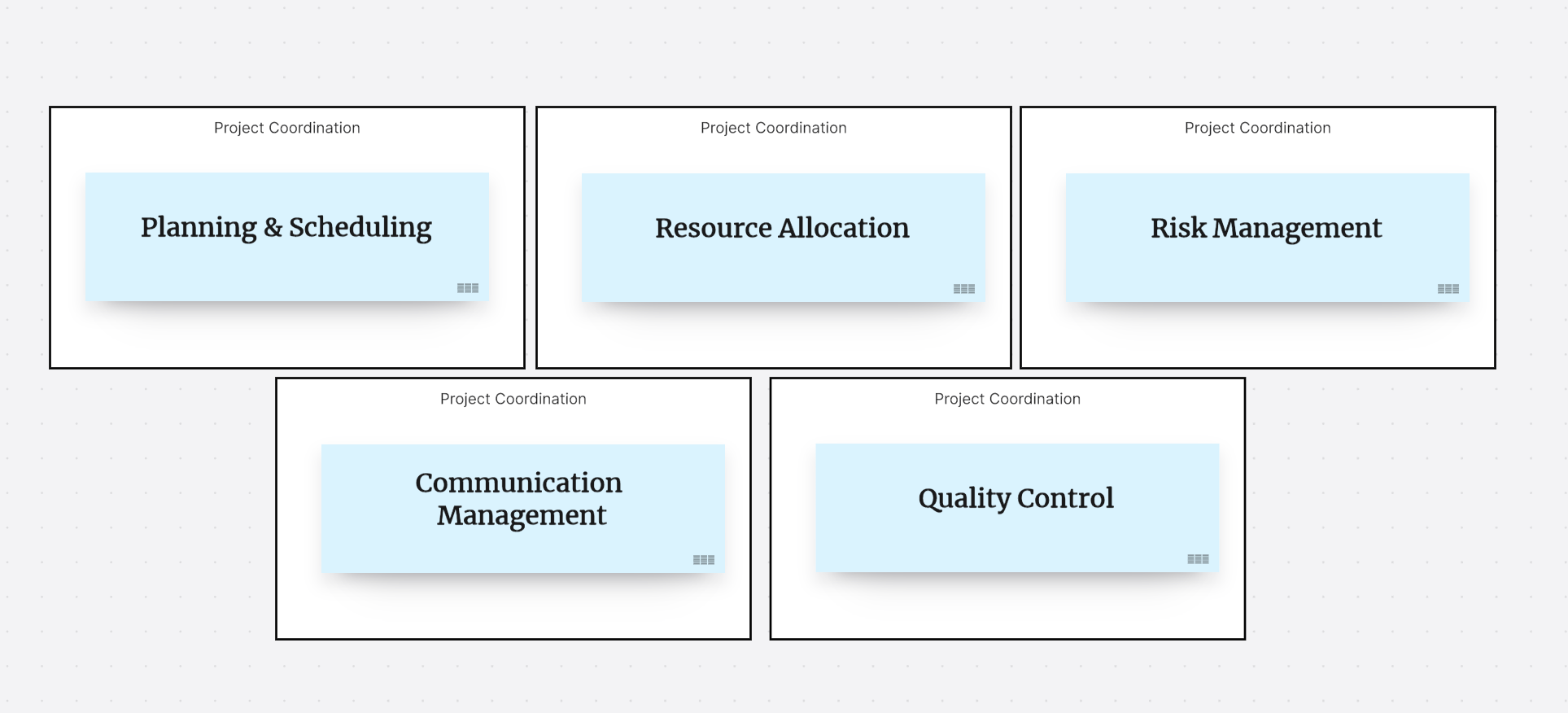
- Planning & Scheduling: This involves creating detailed project plans outlining the tasks, timelines, and resources required. The Project Coordinator also develops schedules to ensure timely completion of each task and maintains flexibility to accommodate any changes or delays.
- Resource Allocation: A critical aspect of project coordination is the efficient allocation and management of resources. This includes human resources, materials, budget, and time. The Project Coordinator ensures that each resource is utilized optimally to avoid wastage and maximize productivity.
- Risk Management: Identifying potential risks and developing contingency plans to mitigate them is another vital responsibility. The Project Coordinator proactively monitors the project's progress to detect any issues early on and implements corrective measures when necessary.
- Communication Management: Effective communication is at the heart of successful project coordination. The Project Coordinator facilitates clear and consistent communication among team members, stakeholders, and clients to keep everyone informed about the project's status.
- Quality Control: Ensuring that all deliverables meet the set quality standards is also part of a Project Coordinator's duties. They implement quality control processes to monitor performance and make improvements where needed.
Ultimately, these responsibilities underscore the pivotal role that a Project Coordinator plays in steering a project towards its successful completion.
Part 5: How to Improve Project Coordination?
Enhancing project coordination is a multifaceted process that requires strategic planning and execution. Here are some key strategies:
- Clear Communication: This involves establishing open channels for a transparent exchange of ideas, updates, and feedback.
- Regular Team Meetings: These are essential to discuss progress, address issues, and brainstorm solutions collectively.
- Use Of Technology Tools: Digital tools can significantly streamline project coordination by facilitating real-time collaboration, task tracking, and resource allocation.
- Proactive Risk Management: This involves identifying potential risks early on and developing contingency plans to mitigate them effectively.
By incorporating these strategies into your project management approach, you can significantly enhance your project coordination capabilities.
Part 6: Improve Project Coordination with Boardmix
Boardmix's project management tool is a game-changer in the realm of project coordination. It provides an interactive platform that fosters real-time collaboration, enabling teams to brainstorm ideas, plan strategies, and track progress seamlessly. With its intuitive interface and robust features, it simplifies complex tasks and promotes efficient workflow management. Whether it's organizing thoughts visually, sharing instant feedback, or managing tasks effectively - this tool makes it all possible at your fingertips. Ultimately, Boardmix empowers teams to coordinate projects more effectively, driving productivity and enhancing overall project outcomes.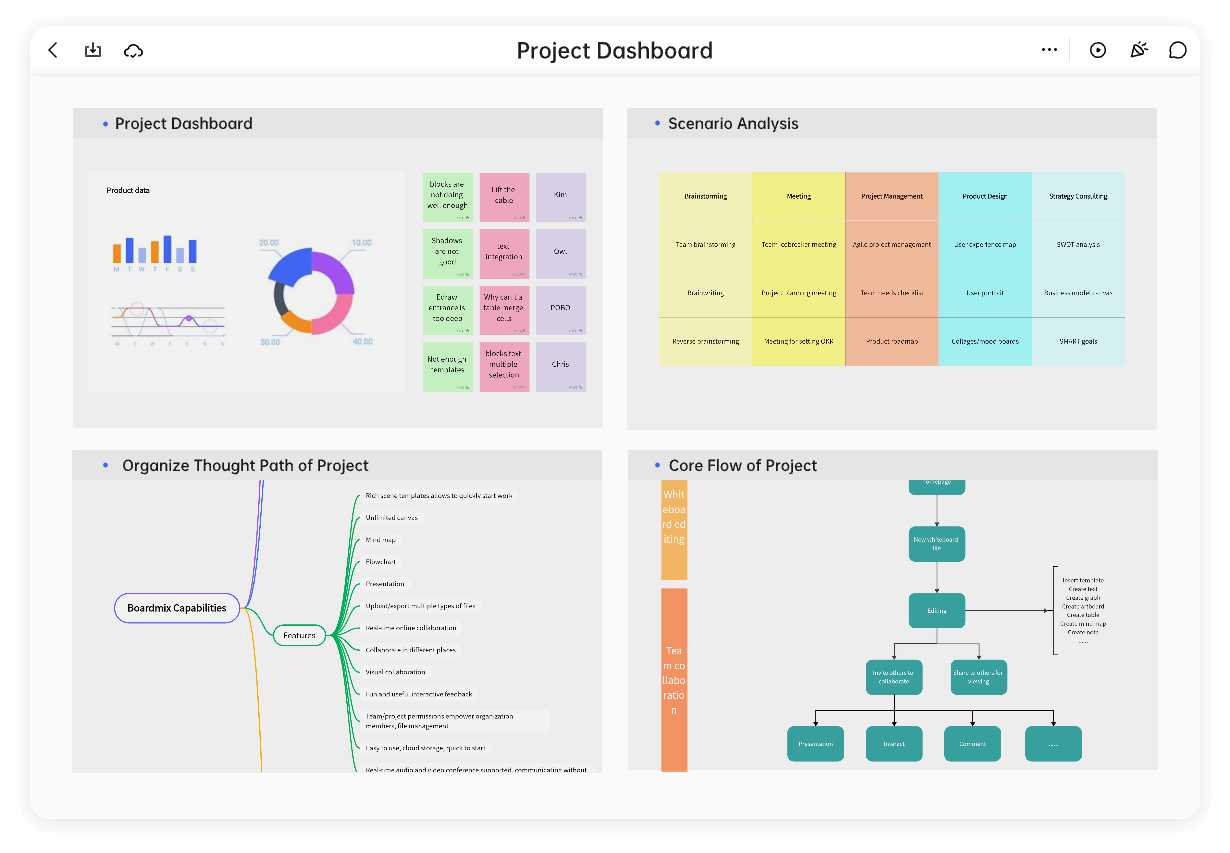
Conclusion
Mastering project coordination is a game-changer, significantly enhancing your team's productivity and efficiency in delivering successful projects. By leveraging Boardmix's online whiteboard tool, you can streamline workflows, foster real-time collaboration, and manage tasks effectively. Embrace the power of Boardmix today to transform your project management approach and drive superior project outcomes!











